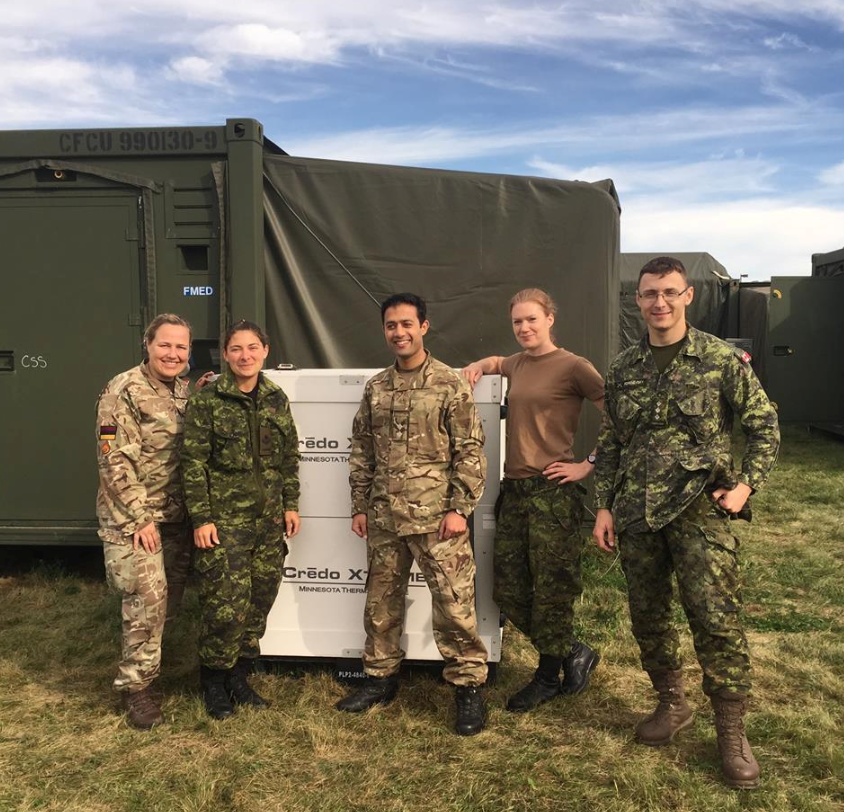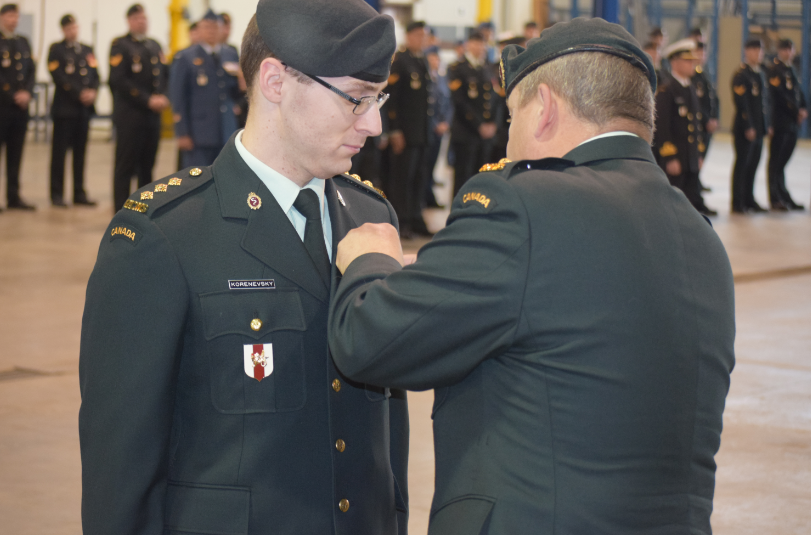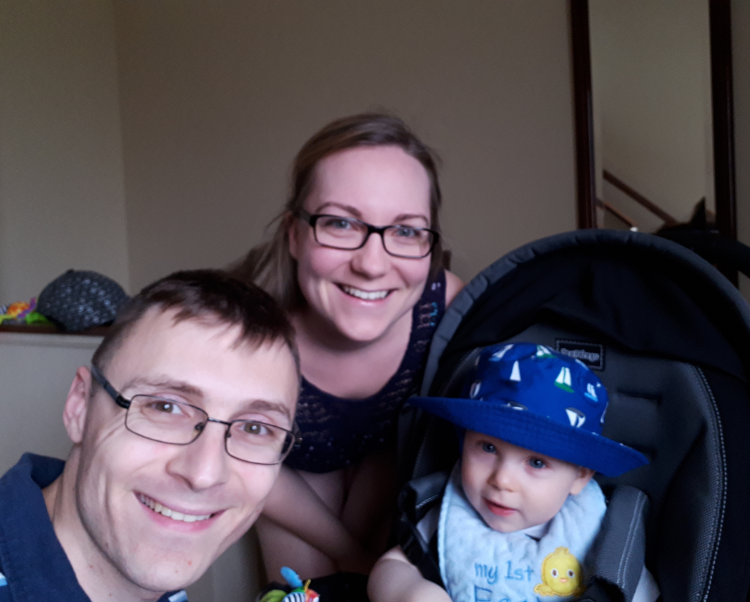Artyom Korenevsky is a Pharmacy Officer with the Canadian Armed Forces. Based at 1 Canadian Field Hospital in Petawawa, Ontario, he is a Pharmacy Team Leader and Platoon Commander. He is also a 2017 graduate of Waterloo Pharmacy's PharmD bridging program.
Where They're Working
At 1 Canadian Field Hospital, Art supports the only unit in the Canadian Armed Forces that can provide surgical and intensive care for critically injured patients on deployments outside of Canada.
“Here, my job is to manage the pharmaceuticals, medical supplies and medical equipment,” explains Art. “To do this I lead a team of medical technicians, supply technicians, and biomedical electronics technicians to accomplish the day-to-day operations.”

The team out on winter training.
Field Hospitals are mobile medical units that are deployed to provide emergency care for the wounded. Members of 1 Canadian Field Hospital have been deployed in places like Iraq, where they supported Canada’s role opposing ISIS, and in support of medical efforts against epidemics like the Ebola outbreak in Sierra Leone.
 Reflections
on
the
Program
Reflections
on
the
Program

“I think the innovative and problem-solving culture at the School of Pharmacy as a whole is probably what influenced me more than any particular subject. The approach of innovation and leadership based on a background of strong knowledge of clinical sciences and therapeutics is what I see is as the biggest influence.”
Pharmacy team on a joint Canadian-British field exercise in 2015.

“I always wanted to be in the military when I was young,” he reflects. “I initially joined the Army Reserves as an Armoured Reconnaissance soldier. When I applied to pharmacy school I didn’t know that the military had Pharmacy Officers. When I found that out, the decision to stay in the military seemed natural.”
As one of only two Pharmacy Officers at the Field Hospital, Art balances his time between leading his team, practicing in primary-care at the base clinic pharmacy in Petawawa, and spending about a month each year on rotations in hospital. He’s done rotations in Emergency Medicine and in Intensive Care Units.
“One of the biggest challenges is to keep learning,” he says. “Often, I’m learning about new evidence in emergency and critical care therapeutics, medical or surgical devices, and equipment. Since we deal with so many specialties, the requests can be very unique and require significant background knowledge.”

Art receiving a Canadian Forces Decoration Medal from the Commanding Officer of 1 Canadian Field Hospital.
Alumni Answers
UW: You’re a leader of a professionally diverse team. What advice do you have for other pharmacists in positions of leadership?
AK: I would say that almost all pharmacists are in leadership positions. Whether you’re working with a team in a community pharmacy or leading a clinical discussion at a family health team, or rounding on patients in the ICU, you’re a leader in one way or another. My advice is always keep learning, be competent, take ownership of the situation, don’t just identify problems – get your team together and solve them!
UW: What difficulties do you face as one of only two pharmacy officers at the Field Hospital?
AK: We often need to plan projects and activities in advance, especially when one of us is gone for an extended period of time. For example, while I was doing my emergency medicine rotation for two months, my colleague was alone. She is now deployed for six months, so I’m “holding up the fort”. Because our role is fairly unique, even within the military, there are not many pharmacists that can easily “back-fill”. So we plan ahead a lot.
Non-Pharm Fun

“When I’m not doing clinical work and not involved in my management duties at the Field Hospital I enjoy fitness, working out, and travelling. Recently, my wife Patricia (who is also a Waterloo Pharmacy graduate) and I had our son Zacharie (pictured right). We enjoy family time together and travelling to Ottawa and Toronto to visit grandparents.”